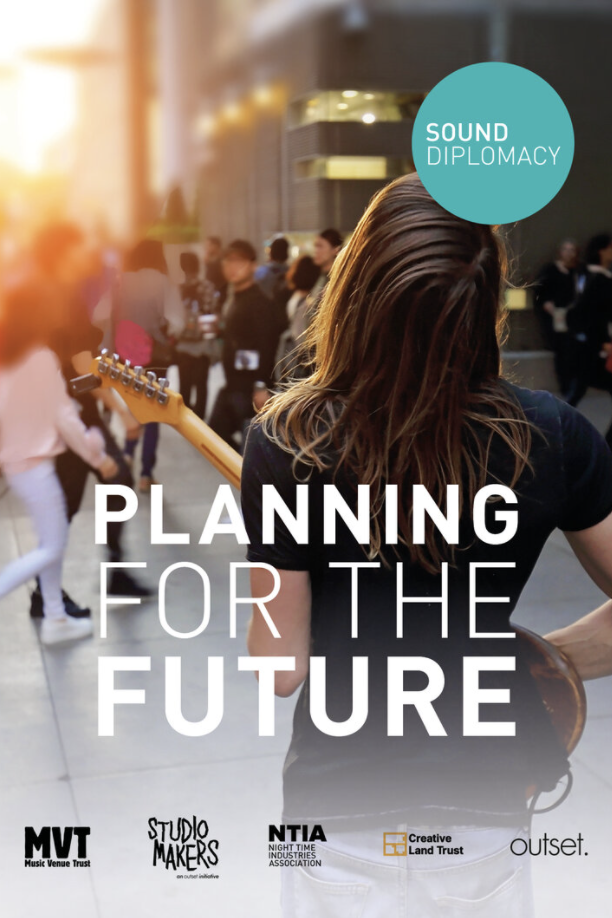Planning For The Future
The Impact On Music, Art, Culture And The Night Time Economy
in partnership with the Music Venue Trust, Outset Contemporary Art Fund, Studiomakers, Night Time Industries Association and the Creative Land Trust 2020
A public facing discussion paper outlining the potential impact of the proposed reforms to planning in England
On 6 August 2020, the U.K. government published Planning for the Future, outlining its proposals to overhaul the planning system in England. These are described as the most significant changes to the planning system since WWII.
Sound Diplomacy, in partnership with the Music Venue Trust, Outset Contemporary Art Fund, Studiomakers, Night Time Industries Association and the Creative Land Trust, argue that while reform is welcome, the White Paper does not address significant issues related to the impact of the planning system on cultural spaces and venues and will, if implemented as is proposed, challenge England’s music, culture, art and night time economy sectors. We also recognise that these proposals are just that – proposals – and we hope this discussion paper supports the redrafting of a planning policy that supports the wider creative economy.
We have written a discussion paper that outlines the impact these reforms may have. Please download, read, comment and share at #PlanningForTheFuture.
